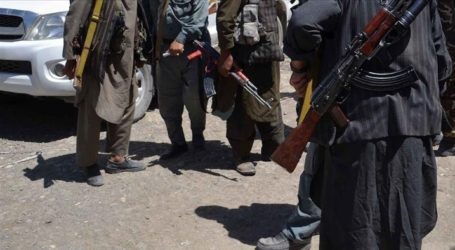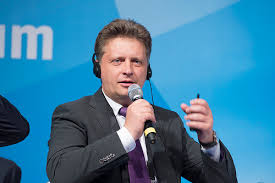EGYPT WITHDRAWS FROM NUCLEAR TALKS IN GENEVA

“We can’t wait forever for the implementation of this decision,” Egypt’s Foreign Ministry issued a statement on Monday (29/4), as Press TV reported monitored by Mi’raj News Agency (MINA).
The statement said the country ended its participation in the two-week talks over other nations’ failure to implement the 1995 resolution, which calls for the creation of a nuclear-weapon-free zone in the region.The walk out came in the sessions of the preparatory committee for the 2015 Review Conference to the Treaty on the Non-Proliferation of Nuclear Weapons (NPT) in Geneva.
The secession was meant “to send a strong message of non-acceptance of the continued lack of seriousness in dealing with the establishment of a nuclear-free zone in the Middle East,” the statement pointed out.
While the assistant to Egypt’s foreign minister for international organizations’ affairs, Hisham Badr, said the withdrawal step aims at sending a strong message about the unsatisfaction of Egypt concerning the non-seriousness of the international community in dealing with such critical issue that influence the Egyptian and Arab peace and security, Ahram reported.
The second session of the Preparatory Committee for the 2015 Review Conference of the Parties to the Treaty on the Non-Proliferation of Nuclear Weapons started on April 22 and will continue until May 3 in Geneva.
The meeting is to review progress in implementing the 1970 NPT, a treaty to prevent the spread of nuclear weapons and weapons technology, to promote cooperation in the peaceful uses of nuclear energy and to further the goal of achieving nuclear disarmament and general and complete disarmament.
On the first day of the conference, Hisham Badr said, “Egypt and many Arab countries have joined the NPT with the understanding that this would lead to a Middle East completely free of nuclear weapons.”
“However, more than 30 years later, one country in the Middle East, namely Israel, remains outside the NPT,” he said.
Cairo has time and again urged Tel Aviv to sign the NPT and allow the International Atomic Energy Agency (IAEA) to inspect its nuclear facilities, a call rejected by Israel.
Israel reportedly maintains between 200 and 400 atomic warheads, but under its policy of so-called nuclear ambiguity, it has never denied nor confirmed its possession of the weapons of mass destruction.
Furthermore, the regime has never allowed any international inspection of its nuclear facilities, Tel Aviv has also refused to join the IAEA, which limits members to civilian uses of nuclear technology.
The other countries, who own nuclear capabilities but refuse to sign the NPT are India, Pakistan and North Korea.
In December 2012, the UN General Assembly had approved a resolution calling on Israel to quickly open its nuclear sites for international inspection.
Moreover, at an NPT conference in 1995, the Arab states proposed to create a weapons-of-mass-destruction-free zone in the region.(T/P012/P03)
Mi’raj News Agency (MINA)





